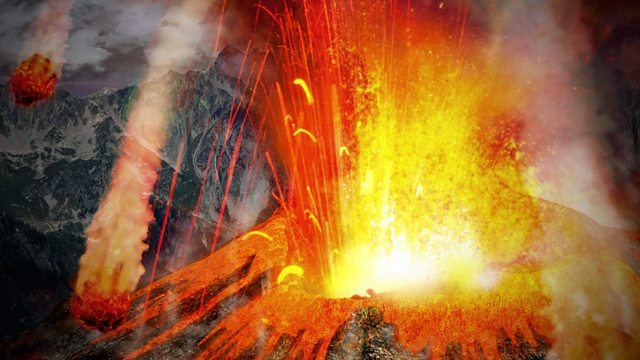Episode 2
Adam Rutherford investigates extinction. Are humans causing an extinction crisis on the scale of the asteroid that wiped out 75 per cent of species 65 million years ago?
There have been five great mass extinction events in the geological history, when at least three quarters of all species of animal on the planet became extinct suddenly (geologically speaking). Many conservation biologists claim that hunting, habitat destruction and climate change have launched a sixth great mass extinction event. This one would be quite different from the previous global mega-death episodes in that the past ones were caused by crash-landing astronomical objects or colossal volcanic eruptions. The current crisis is caused by a single species of creature.
But is the great sixth extinction really happening? Where are we on the trajectory towards 75% global species loss and if we are, can we get off it.
One of the greatest difficulties in assessing these questions is that measuring species extinction is a hard thing to do, even with relatively large sized animals. The programme visits a project in India which is monitoring one of the few surviving populations of the Ganges River Dolphin. The project is a partnership between the Indian conversation group Aaranyak and the Zoological Society of London. This dolphin's closest relative - the Yangtze River Dolphin - was one of the most recent mammals declared extinct. The Ganges species itself is endangered, down to an estimated 2,000 individuals. A few decades ago these freshwater dolphins were a common sight in the Ganges and Brahmaputra. Today you are lucky to find one.
But assessing the extinction risk and statistics of large animals such as dolphins is easy compared to doing that for the vastly more numerous species of smaller creatures in the rainforests and coral reefs. Exactly how many species are being lost today has become a contentious issue even among ecologists, as Adam Rutherford hears - although the debate does boil down to whether the situation is really bad or extremely bad.
Aside from the slippery figures, what should the conservation priorities be? Should conservation agencies and organisations be spending resources on saving individual endangered species such as the Ganges River Dolphin, the Tiger and the Black Rhino? Or does the science suggest that more species will be saved and more good done by focusing funds and effort on less charismatic organisms and, if needs be, letting the river dolphins and the big cats go the way of the dinosaurs?
Producer: Andrew Luck-Baker.
Last on
Broadcasts
- Tue 22 May 2012 11:00成人快手 Radio 4
- Thu 24 May 2012 21:00成人快手 Radio 4

